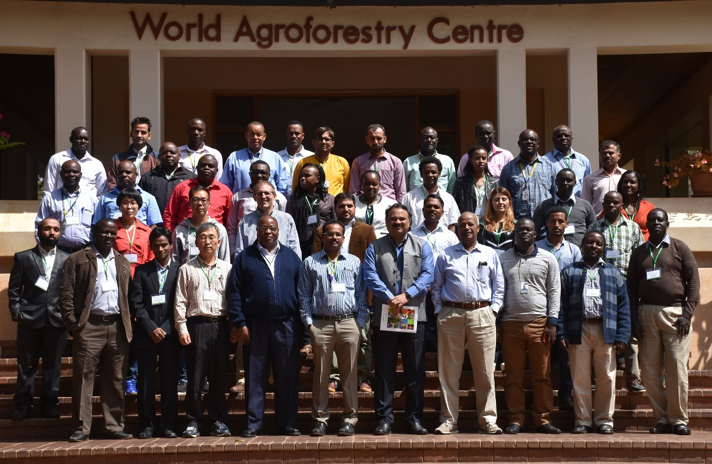The main focus of the course was to train maize breeders in developing high-yielding, more nutritious varieties that are resistant to various biotic and abiotic stresses in a resource and time efficient manner using novel technologies. The course involved presentations by scientists from the International Maize and Wheat Improvement Center (CIMMYT) and experts from the University of Hohenheim, AgReliant Genetics, Biosciences eastern and central Africa (BecA) and the University of Nairobi. The participants included 29 researchers from national agricultural research organizations, universities and private companies based in Africa and Asia.
Maize is the most widely produced crop in the world, providing about one-third of the calorie intake in Latin America, the Caribbean and Africa. However, the expansion of new diseases and pests like maize lethal necrosis (MLN), fall armyworm and climate change effects like drought and heat stress are expected to reduce yields in maize growing areas. Developing climate-resilient maize resistant to multiple stresses is crucial to feed maize-dependent populations.
Despite these challenges, research has shown that new technologies like doubled haploids and marker assisted selection – DNA screening methods and high throughput phenotyping that speeds up the breeding process – can increase efficiency in breeding.
The course covered various aspects of maize breeding such as improving nutritional quality by breeding for increased levels of provitamin-A and quality protein, boosting climate resilience by improving tolerance to stresses like drought, heat and poor soils and improving tolerance to insect pests and diseases.
The course also included four intensive workshops. The first workshop covered various aspects of doubled haploid technology and its use in maize breeding programs to increase efficiency. The second workshop included various topics on using molecular marker technologies to increase the selection intensity and increasing genetic gains. The third workshop trained participants on field data analysis and how to use a field book. The fourth workshop elaborated on various concepts under the demand-driven variety development module, and was conducted by colleagues from BECA and University of Nairobi.
The course also included two field days. During the visit to the CIMMYT-Kenya Agricultural and Livestock Research Organization (KALRO) experimental station at Kiboko, participants experienced all the processes involved in maize doubled haploid line production and the development of high-yielding maize varieties with tolerance to drought and low nitrogen. A field tour to the MLN facility in Naivasha showcased advanced inbred lines and commercial hybrids that are tolerant to MLN versus susceptible commercial checks.
Participants stated these new technologies and methods will help them improve their own breeding programs, and put improved varieties into farmers’ fields faster than ever.

 Capacity development
Capacity development 
